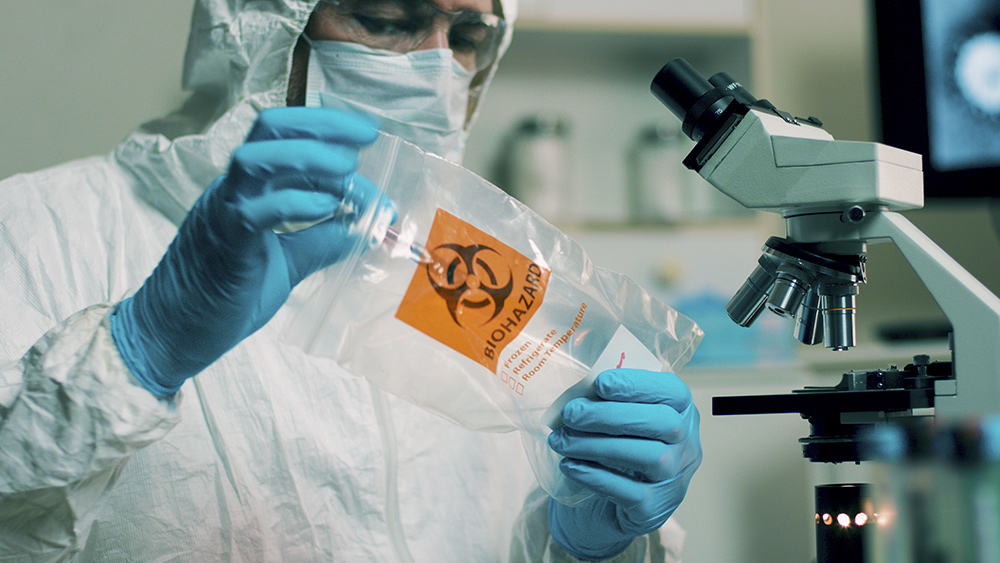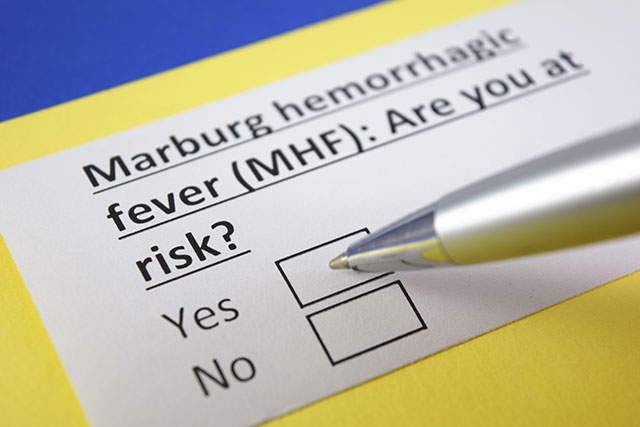Mystery “Disease X” strikes Congo, targeting mostly vulnerable children
12/13/2024 / By Ava Grace

- A recently discovered illness, known as “Disease X,” has struck the Democratic Republic of the Congo, infecting over 400 people, predominantly children.
- The symptoms of Disease X mimic those of common illnesses such as the flu, measles and respiratory infections, making accurate diagnosis difficult.
- The World Health Organization and the Africa Centers for Disease Control and Prevention have dispatched a team of experts to the affected area to assist in identifying and containing the outbreak.
- Given the symptoms, authorities suspect possible airborne transmission, but this is yet to be confirmed. In the meantime, they advise avoiding mass gatherings and handling remains with caution to prevent further spread of the disease.
A mysterious illness is ravaging the Democratic Republic of the Congo (DRC). Dubbed “Disease X,” this unknown illness has already claimed at least 31 lives and infected over 400 people, primarily children, in the country’s remote southwestern Kwango province.
The DRC has long been a hotspot for medical crises, particularly in its under-resourced regions. The latest outbreak began several weeks ago, but it wasn’t until late October that authorities were alerted. By then, the disease had already infected numerous children and adults, with a significant number of cases in individuals under the age of five.
Symptoms of Disease X are eerily similar to the flu, causing fever, coughing, body aches and difficulty breathing. These symptoms are not unique, which makes it challenging to determine the exact cause of the illness. Health officials are considering a wide range of possibilities, including influenza, malaria, measles, a variant of the Wuhan coronavirus (COVID-19) or other respiratory infections.
The World Health Organization (WHO) and Africa Centers for Disease Control and Prevention (Africa CDC) have sent a team of experts to the DRC to investigate the outbreak and provide support to local health officials. However, the challenges of working in a remote and underserved region are significant. (Related: World Health Organization threatens another “Disease X” like COVID unless all nations obey its authoritarian Pandemic Treaty.)
One critical question that remains unanswered is how contagious the disease is. Symptoms suggest a possible airborne transmission, but this has yet to be confirmed. Until the cause is identified, authorities are urging people in the affected areas to avoid mass gatherings and handle remains with caution to prevent the potential spread of the disease.
The WHO and Africa CDC are testing samples from the infected individuals, but the results are slow to come due to logistical challenges. The rainy season has made transportation difficult, and the region’s limited access to advanced diagnostics is a significant barrier. As health experts continue to investigate, the number of cases and deaths continue to rise, highlighting the urgent need for a speedy resolution.
Efforts to identify Disease X hampered by lack of resources
As the investigation unfolds, it’s crucial to remember that Disease X is not an isolated incident. The world has already witnessed several outbreaks of unknown origins, from China’s SARS in 2002 to the Zika virus in 2015. Each time, the international community has scrambled to respond, only to find that the disease was not as novel as initially thought.
Africa CDC Director General Dr. Jean Kaseya, who is himself Congolese, expressed frustration at the delay in alerting national authorities. He emphasized the need for stronger disease surveillance systems and improved local health infrastructure to respond more swiftly to future outbreaks.
The current outbreak in the DRC offers a stark reminder of the importance of preparedness. Beyond the immediate need to contain Disease X, it underscores the ongoing challenges faced by developing countries, where basic healthcare infrastructure is often lacking.
Watch this video discussing how Disease X may be the new globalist “plandemic” plot.
This video is from the InfoWars channel on Brighteon.com.
More related stories:
WHO’s Tedros demands COMPLIANCE from the world, citing hypothetical Disease X.
Sources include:
Submit a correction >>
Tagged Under:
Africa, big government, CDC, chaos, children's health, Dangerous, Democratic Republic of the Congo, Disease X, DRC, health science, infections, infectious diseases, national security, outbreak, panic, Plague, respiratory illnesses, unexplained, WHO, World Health Organization
This article may contain statements that reflect the opinion of the author
RECENT NEWS & ARTICLES
Infections.News is a fact-based public education website published by Infections News Features, LLC.
All content copyright © 2018 by Infections News Features, LLC.
Contact Us with Tips or Corrections
All trademarks, registered trademarks and servicemarks mentioned on this site are the property of their respective owners.



















